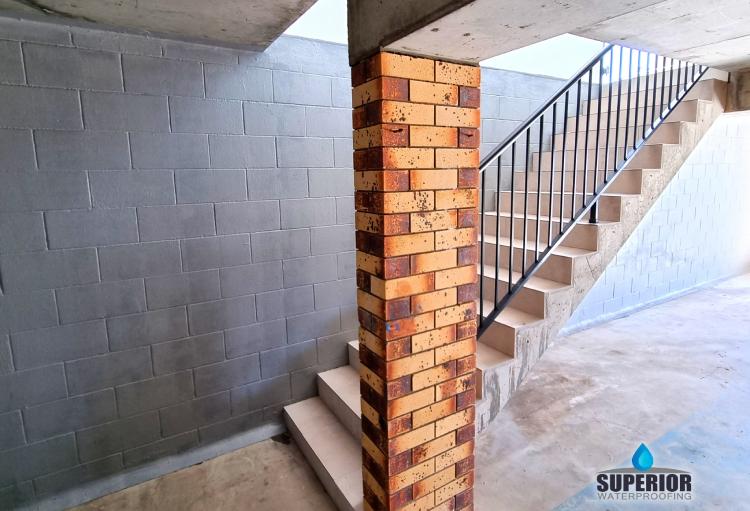Any project involving properties follows a comprehensive set of rules to be successful. With that, there are things you should avoid to prevent delays. There are also processes you must adhere to for increased efficiency.
In this guide, we will outline the different dos and don’ts of basement waterproofing to give you a clearer understanding of the procedure.

But first, why do we need to waterproof our basements?
Your basement may just be a part of your property for storing things, a place you don’t frequently visit and no guests can see. That is why some may think it is fine to leave it as is.
However, water ingress may cause moisture, resulting in moulds and putting the occupants’ health at risk. In addition, exposure to wetness will most likely result in cracks, affecting your home’s structural integrity.
It is important to take preventive measures before seeing signs of basement damage. As such, basement waterproofing can help property owners get rid of all of these issues before it’s too late. Hence, make sure to include waterproofing before deciding to place your property under construction.
What to Do
1. Clean Gutters Regularly
Cleaning gutters is more than just preventing fallen leaves and other elements from building up and causing a mess in your home. Gutters filled with dirt and trash will clog and block the water when it starts raining.
Now, what will happen from there?
When gutters fail to do their job, the water may go directly to your basement instead of your house’s outdoor space or lawn. Then, you’ll deal with flooding and water damage before you know it.
So, always include gutter-cleaning before basement waterproofing, and do it regularly even after the project’s completion.
2. Determine the Source of Water Ingress
If there is water in your basement, chances are they come from cracks that have developed over time. Hence, always check for cracks, gaps, and any wall damage to prevent water from entering your basement. Also, don’t forget to include any sources of leaks or water ingress, including window wells.
Regularly checking your basement will help prevent water from entering your property in the future—it is not enough to settle for a temporary fix, which is getting water out of your basement.
Once you find the issues, always contact a professional because they can give you long-term solutions and help you avoid paying for costly repairs in the future.
3. Research Various Waterproofing Options
Whether you’re planning to do basement waterproofing on your own or you’re employing the services of a professional, it is beneficial to do your research on different waterproofing solutions.
Remember, there are different types of waterproofing materials used for various projects. So, when you research these options, you’ll know what works best for you and matches your budget for the waterproofing project.
What NOT to Do
1. Use DIY Sealants
Nowadays, there are different DIY sealants available in various home improvement stores. While this may help you fill in the gaps on your basement’s walls, they are only temporary solutions at best. These types of sealants are cheap, but they may wear away quickly.
We recommend you contact a waterproofing expert, as they will only use high-quality or industry-standard sealants to achieve desirable results.
Aside from DIY sealants, you must avoid using tar or plastic for basement waterproofing. Tar is only suitable for coating timber. When used in waterproofing, it will become brittle as time goes by and form cracks, making it useless. On the other hand, plastic will also peel from the surface.
2. Forget Cleaning After Floods
Basements, being the bottommost portion of your home, are always prone to floods. Some may think it’s okay to just leave it there since the water will only dry up over time. But as previously mentioned, constant exposure to wetness will lead to mould buildup, which can affect your health.
Plus, ignoring flood water may also damage the properties you store in your basement. And you wouldn’t want that. This step is also important before making any wall repairs or waterproofing.
3. Fix Leak with Waterproof Paint
Waterproof paints are used for what they are: painting. Fixing leaks with waterproof paint won’t do anything because it only sits on the surface and never permeates the pores of the concrete. Thus, the water from the outside will only build up between the concrete and the paint. Then, the paint will only peel away.
Contact Superior Waterproofing for Your Basement Waterproofing Needs!
At Superior Waterproofing, we have a team of professionals who are trained to provide you with reliable basement waterproofing. Aside from that, we also do retaining wall waterproofing, crack injection, joint sealing, rooftop waterproofing, and balcony waterproofing in Brisbane and Gold Coast.
You can find out more about these services on our website or call us at +61468760750 to learn more about what we do. We assure you that we will assist you with your waterproofing needs as soon as we can.